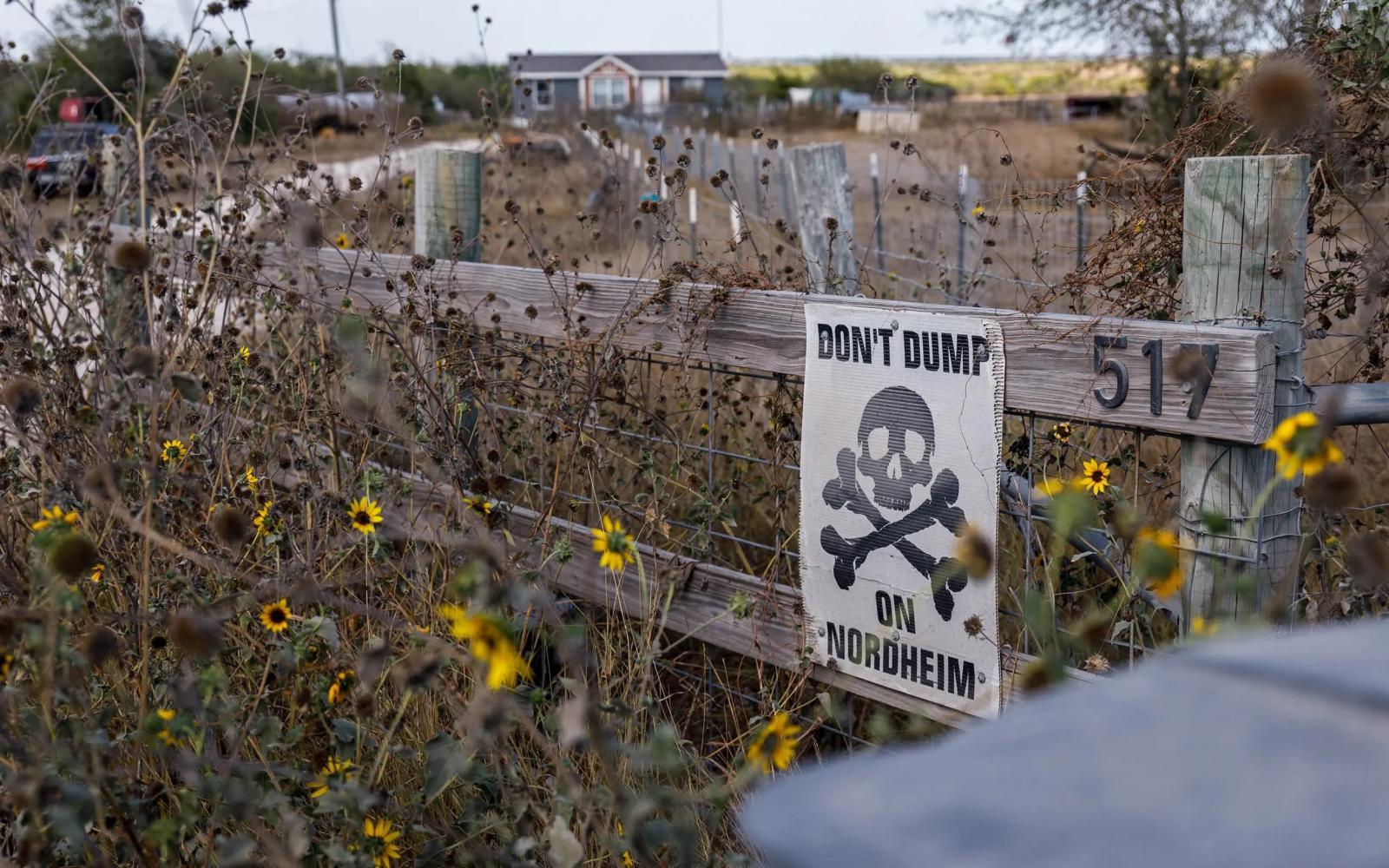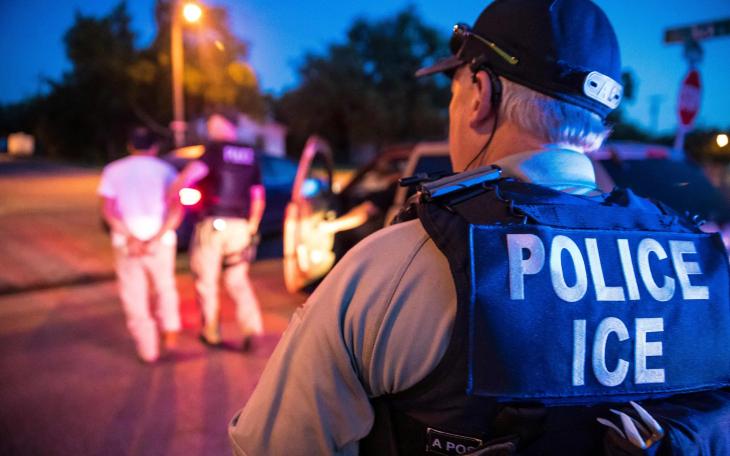By Martha Pskowski, Inside Climate News
"Bill would stop Texas oil drillers from secretly burying toxic waste on private property" was first published by The Texas Tribune, a nonprofit, nonpartisan media organization that informs Texans — and engages with them — about public policy, politics, government and statewide issues.
Sign up for The Brief, The Texas Tribune’s daily newsletter that keeps readers up to speed on the most essential Texas news.
This story is published in partnership with Inside Climate News, a nonprofit, independent news organization that covers climate, energy and the environment. Sign up for the ICN newsletter here.
AUSTIN, TX - A bill in the Texas Legislature would require oil and gas drillers to notify landowners before burying toxic waste on their property.
In addition, House Bill 4572 would strengthen other regulations for reserve pits, where oil and gas companies permanently bury waste next to drilling sites. The Texas House Energy Resources Committee heard testimony on the bill Monday. The bill builds on rulemaking the Railroad Commission of Texas, which regulates the oil and gas industry, completed late last year to update the state’s oilfield waste regulations.
State Rep. Penny Morales Shaw, who filed the bill, said it would introduce “safeguards” for the state’s groundwater and property owners. Landowners, advocates and an oilfield waste professional spoke in favor of the bill this week at the Capitol. A representative of the Permian Basin Petroleum Association spoke in opposition to the bill.
“Ranch owners can pour their life savings into their dream homestead, only later to find out that they bought a toxic waste reserve,” said Morales Shaw, a Democrat who represents parts of Houston and northern Harris County. “This bill will afford landowners the opportunity to make an informed decision and to know when their interests are at risk.”
The waste streams from the oil and gas industry have evolved since the widespread adoption of fracking. Oil-based muds and lubricants are now used to frack wells. Waste from wells can be laced with carcinogens including benzene and arsenic.
The bill is now pending in the Energy Resources Committee and faces several hurdles to passage by the full House, if it is voted out of committee. A companion bill, Senate Bill 3017, was introduced by state Sen. José Menéndez, a Democrat from San Antonio. The Senate bill has not yet received a hearing. The clock is ticking to June 2, the last day of the Texas legislative session.
Morales Shaw said she has spoken with all the committee members about the importance of the bill and the “compelling testimony from lifelong industry members.”
Bill seeks “balanced” approach to waste pits
HB 4572 proposes new regulations for reserve pits, also referred to as Schedule A pits by the Railroad Commission. These earthen disposal pits are dug next to drilling rigs and are filled with oily waste, including mud and cuttings from the well. The pit is left open while the well is drilled. The waste is permanently buried underground once the well is complete.
The bill would require the Railroad Commission to adopt standards for where reserve pits can be located and establish bonding and groundwater monitoring rules. The bill would also require standards for “providing notice to and receiving permission from” a landowner to permanently bury waste.
Morales Shaw told the committee the bill “empowers landowners with the information and consent they deserve before toxic waste is buried beneath their property.”
She referenced hundreds of violations of water protection rules the Railroad Commission has issued at waste pits. She also circulated photos of pollution caused by reserve pits and cows wading through drilling mud in a pit. State Rep. R.D. “Bobby” Guerra, a Democrat from McAllen, called the images “appalling.”
“I have a ranch,” he said. “And I would be, excuse the expression, pissed off if I saw this kind of stuff going on on my place.”
“It’s full of chemicals and lubricants and fluids and different emulsifiers and whatnot,” said state Rep. Jon Rosenthal, a Democrat from northern Harris County. “It’s poison, it smells bad and it’s probably not good for cows.”
Texas revamped its oilfield waste rules last year for the first time since the 1980s. The updated rule on reserve pits, which goes into effect July 1, will require companies to register the location of these pits for the first time. The updated rule only requires reserve pits to be lined when groundwater is within 50 feet of the bottom of the pit. There is no groundwater monitoring required.
Hundreds of people submitted public comments about reserve pits during the rule-making, many of them asking the Railroad Commission to require landowner notification. However, the Railroad Commission did not include a landowner notification requirement in the final rule.
At the time, Commissioner Jim Wright’s spokesperson told Inside Climate News that it would be “up to the Texas Legislature” to determine how and whether landowners should be notified of pits on their property. Wright’s staff did not immediately comment on HB 4572.
Morales Shaw said the existing rule does not go far enough.
“It has been 40 years since these waste pits have been permitted, and they are just now trying to figure out where they all are,” she said. “The Railroad Commission’s rules do not take meaningful and necessary steps to protect land, water supply, and livelihoods of landowners.”
Landowners speak in support
Public comments, both delivered in person and submitted in writing, largely supported the bill.
Comal County landowner Mark Friesenhahn, who spent his career in the oil and gas industry, said over time reserve pits have become larger and more toxic chemicals and additives have been used in drilling muds. Friesenhahn, who spoke in favor of the bill, said existing practices are “no longer practical given the toxicity and contamination concerns.”
Laura Briggs, whose family ranch is in Pecos County in the Permian Basin, submitted written comments. She wrote that where waste pits have been dug on their property, “the land is dead ground that caves in, and belches half-buried black plastic.”
“Landowner consent does not have to be burdensome to be effective,” she wrote.
Commission Shift Action, the advocacy partner of the nonprofit organization Commission Shift, is also in support of the bill. Policy manager Julie Range said in an interview that expecting companies to be good stewards isn’t enough.
“If we want best practices to be followed we should put them into our statutes,” she said.
The sole public comment in opposition to the bill was registered by Michael Lozano on behalf of the Permian Basin Petroleum Association. Referencing the recent rulemaking at the Railroad Commission, he recommended lawmakers wait for the updated rule to be rolled out July 1 before passing legislation regarding waste pits.
“What we’d like to see is how these new environmental protections … interact and engage with this,” he said.
Lozano said the cases pointed out during the hearing were examples of companies breaking the existing rules.
“Clearly there are problems that are happening,” he said. “I don’t think they’re indicative of every circumstance of these pits being built.”
The committee adjourned without voting on the bill.
Disclosure: The Permian Basin Petroleum Association has been a financial supporter of The Texas Tribune, a nonprofit, nonpartisan news organization that is funded in part by donations from members, foundations and corporate sponsors. Financial supporters play no role in the Tribune's journalism. Find a complete list of them here.
Tickets are on sale now for the 15th annual Texas Tribune Festival, Texas’ breakout ideas and politics event happening Nov. 13–15 in downtown Austin. Get tickets before May 1 and save big! TribFest 2025 is presented by JPMorganChase.
This article originally appeared in The Texas Tribune at https://www.texastribune.org/2025/04/17/texas-oil-drilling-waste-private-property-landowner-notification/.
The Texas Tribune is a member-supported, nonpartisan newsroom informing and engaging Texans on state politics and policy. Learn more at texastribune.org.

A home across the street from an entrance to an oilfield waste disposal facility has a sign reading "DON'T DUMP ON NORDHEIM" on Sept. 10, 2023. Credit: Julius Shieh/The Texas Tribune
Subscribe to the LIVE! Daily
Required






Post a comment to this article here: